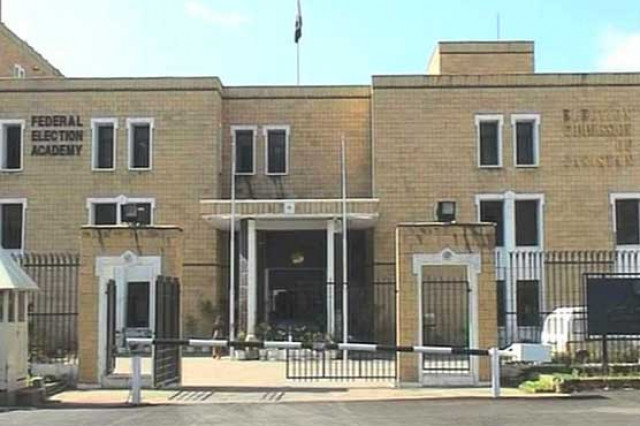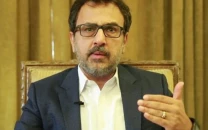Sans legal cover, ECP announces schedule
Bill to hold capital’s LG elections in Senate; ECP to go ahead regardless of legal cover

Bill to hold capital’s LG elections in Senate; ECP to go ahead regardless of legal cover. PHOTO ECP.GOV.PK
Amid controversy over the legal standing of preparations by the Election Commission of Pakistan (ECP) for holding local government elections in Islamabad in absence of required legislation, the poll body on Tuesday announced the code of conduct and the election schedule.
According to the schedule, polling will be held in the Islamabad Capital Territory (ICT) on July 25.
A few days ago, the ECP issued notifications regarding appointment of returning and deputy returning officers and delimitation of constituencies for the polls but these notifications were dubbed as “unconstitutional” by several parliamentarians on the ground that required legislation — the ICT Local Government Bill, 2015 — is still pending with Parliament.
However, the ECP is of the view that it would continue preparations as per the deadlines given by the Supreme Court in its March 10, 2015 judgment.
In its judgment, the court had strictly warned the ECP to not use pending legislation as an excuse to postpone the local bodies’ elections. The apex court also ordered the ECP to use the unapproved draft of the bill as a valid document to hold elections if Parliament fails to adopt it within the given timeframe.
According to the schedule released on Tuesday, the election process will begin from June 24 (today) with the notification of invitation of nomination papers by the returning officers. The deadline for submitting nomination papers by the aspiring candidates is June 26.
The final list containing names and election symbols of contesting candidates will be published on July 6.
As many as 620,165 registered voters at 79 union councils of Islamabad will exercise their right to elect their local representatives. Some 13 public representatives against each union council will be elected.
The posts include a chairman and vice chairman who will contest elections jointly, six general members, two women members, one representative each for peasant, youth and non-Muslim.
Pending legislation
On the other hand, the seriousness of the upper house of Parliament to deal with the issue of the pending bill can be gauged from the fact that a meeting of a subcommittee of the Senate Standing Committee on Interior scheduled to be held on Tuesday was postponed for reasons unknown.
The subcommittee headed by Senator Barrister Mohammad Ali Khan Saif was supposed to discuss a one point agenda: to further discuss and elaborate the ICT Local Government Bill as passed by the National Assembly.
“I was informed about the postponement at eleventh hour. No reason has been conveyed to us,” said Senator Mohammad Javed Abbasi, a member of the subcommittee.
Since its formation on May 28, the three-member Senate subcommittee has only held two meetings. The said body recently came up with proposed changes to 49 clauses of the draft bill in a bid to curb the federal government’s direct authority over the local body and to ensure financial autonomy to local units.
To a question about delay on behalf of the Senate over the passage of bill, Abbasi acknowledged “no doubt it’s delayed. It should have been decided much before.”
Abbasi expressed his astonishment over what he termed “illegal acts” of the ECP. “ECP cannot announce schedule for elections until approval of ICT bill from the Parliament. Announcement of schedule is illegal and unconstitutional in the absence of legislation,” Abbasi said. He expressed hope that subcommittee would table its report before the Senate during its next session.
Code of conduct
The ECP has also released a code of conduct along with the election schedule.
It says that no transfer or posting of the civil servants shall be made within the ICT after the issuance of election schedule and till publication of election results, which will happen on July 28. Moreover, all executive authorities in the federation have been restrained from using state resources to influence the election process.
The prime minister, speaker and deputy speaker of the national assembly, federal ministers, state and provincial ministers, and advisers to the premier or any other public official have been restrained to visit the areas of any union council to announce any development scheme after announcement of the election schedule.
Any holder of public office, it says, who is found to have violated any provisions of the election laws shall be proceeded against as mandated in the law.
Published in The Express Tribune, June 24th, 2015.



















COMMENTS
Comments are moderated and generally will be posted if they are on-topic and not abusive.
For more information, please see our Comments FAQ